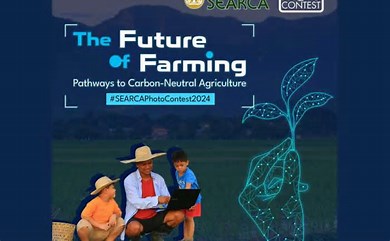
2020 D-Prize Challenge Prize for Social Entrepreneurs
Deadline: October 20, 2019.
D-Prize supports new entrepreneurs who increase distribution of proven poverty interventions. The world has already invented products and services to end poverty, yet the best are not being distributed at mass-scale. Can you design a business or NGO that solves one of the Distribution Challenges below?
D-PRIZE CHALLENGES
1. GIRLS EDUCATION:
SUGAR DADDY AWARENESS CHALLENGE:
14 million unintended teen pregnancies occur annually in sub-Saharan Africa, and girls are 5x more likely to be infected with HIV. A one-hour “sugar daddy awareness” class reduces these risks 28%. Can you teach “sugar daddy awareness” classes to girls in need?
Download the Sugar Daddy Awareness Challenge
2. AGRICULTURE
I. QUALITY SEED CHALLENGE:
Farmers who plant poor quality seeds suffer from low crop yields. High quality seeds that have been naturally bred to mature quicker, resist drought, and fight disease can double yields. Can you distribute improved seeds to farmers within sub-Saharan Africa?
Download the Quality Seed Challenge
II. FERTILIZER CHALLENGE:
The world has invented a number of effective planting techniques proven to increase crop yield. For instance, microdosing fertilizer is a cost-effective method for applying fertilizer and ensuring higher crop yield. Can you teach smallholder farmers in sub-Saharan Africa effective planting techniques?
Download the Fertilizer Challenge
III. IMPROVED FARM PRACTICES CHALLENGE:
The world has invented a number of effective planting techniques proven to increase crop yield. For instance, microdosing fertilizer is a cost-effective method for applying fertilizer and ensuring higher crop yield. Can you teach smallholder farmers in sub-Saharan Africa effective planting techniques?
Download the Improved Farm Practices Challenge
IV. CUSTOM AGRICULTURE CHALLENGE:
D-Prize is specifically interested in distributing proven agriculture interventions to smallholder farmers. If you know of a highly-effective intervention that is backed by credible evidence, we want to hear your plan to increase its distribution.
Download the Custom Agriculture Challenge
3. ENERGY
I. SOLAR LAMP CHALLENGE:
600 million people in sub-Saharan Africa use kerosene lanterns to light their homes. Solar lamps are cheaper, cleaner, create cost savings, and increase household incomes by 30%. Can you sell solar lights to rural or slum-dwelling households in need?
Download the Solar Lamp Challenge
II. COOK STOVE CHALLENGE:
3 billion people cook on traditional stoves, which cause chronic smoke exposure and are the cause of 4% percent of the global disease burden. A $13 modern stove provides cost savings and health benefits. Can you sell cook stoves and maintain long-term adoption rates?
Download the Cook Stove Challenge
4. GLOBAL HEALTH
I. PATIENT IDENTIFICATION CHALLENGE:
Obstetric fistula, cervical cancer, club foot, and cataracts all have effective treatments. Yet identifying patients among large populations is difficult. Can you create a way to identify patients and connect them to early treatment solutions?
Download the Patient Identification Challenge
II. MATERNAL HEALTH CHALLENGE:
Misoprostol is a $3 drug that could prevent 100,000 maternal deaths from postpartum hemorrhaging. Can you develop an organization to train birth attendants to administer misoprostol?
Download the Maternal Health Challenge
III. VMMC CHALLENGE:
The incidence of new HIV infections in many countries in Eastern and Southern Africa remains high. Voluntary Medical Male Circumcision (VMMC) can substantially reduce the risk of HIV acquisition for men, and can also reduce the risk of transmission of high-risk human papillomavirus (HPV) to the men’s partners. Can you develop an organization to identify candidates for VMMC and connect them to health facilities?
IV. PMTCT CHALLENGE:
HIV can be transmitted from pregnant women to their infants. A short round of antiretroviral therapy (ART) can substantially reduce the risk of mother-to-child transmission. Can you prevent mother-to-child transmission (PMTCT) of HIV by helping HIV-positive pregnant women adhere to an ART regimen?
V. SAYANA® PRESS CHALLENGE:
Many women in developing countries have an unmet need for contraception. Sayana® Press is an injectable contraceptive in a single-use package. Since the product is simple enough for community health workers or recipients themselves to administer, it may be particularly valuable for women who prefer injectable contraceptives but do not have regular access to health facilities. Can you train health providers on how to administer Sayana® Press?
Download the Sayana® Press Challenge
VI. IMMUNIZATION CHALLENGE:
Millions of infants in developing countries do not receive the routine immunizations recommended by the World Health Organization. Increased immunization rates in low-coverage areas could prevent a large number of childhood deaths from preventable diseases. Can you direct 500 caregivers (parents or other guardians) to bring their infants to health facilities for routine immunizations that otherwise would not occur?
Download the Immunization Challenge
5. EDUCATION
I. FLIPPED CLASSROOM CHALLENGE:
By 2030 Africa will need to fill an impossible 4.1 million teaching positions. “Flipped classrooms” and deskilled curriculum can be run by a facilitator, and reduce the need for expert teachers. Can you implement an effective curriculum to teach students in a resource-limited classroom?
Download the Flipped Classroom Challenge
II. STUDENT TESTING CHALLENGE:
In sub-Saharan Africa, 40% of children remain illiterate even after five years of school. Testing and public scorecards increase accountability in poor education systems. Can you launch an organization that tests student and school performance, and makes the information publicly available?
Download the Student Testing Challenge
6. GOVERNANCE AND INFRASTRUCTURE
TRANSPARENCY CHALLENGE:
Public services in developing countries are rife with corruption. Public reporting and scorecards creates real accountability. Can you improve transparency and report data on the public service performance?
Download the Transparency Challenge
7. CUSTOM
PROPOSE YOUR OWN CHALLENGE:
Propose your own challenge! If you know of another proven intervention in need of greater distribution, we would like to hear it. The only requirements are to choose an already proven poverty solution that is in need of distribution to more people in the developing world.
ELIGIBILITY
1. D-Prize is for aspiring entrepreneurs from anywhere in the world, of any age, and any background.
2. They will consider funding existing organizations only if: you are piloting a new distribution-focused initiative, and you need high risk capital.
BENEFITS
1. Top entrepreneurs interview. Winners will receive up to $20,000 to launch.
2. Spend the next three months using your talent to start a venture and help millions of people.
OFFICIAL LINK



